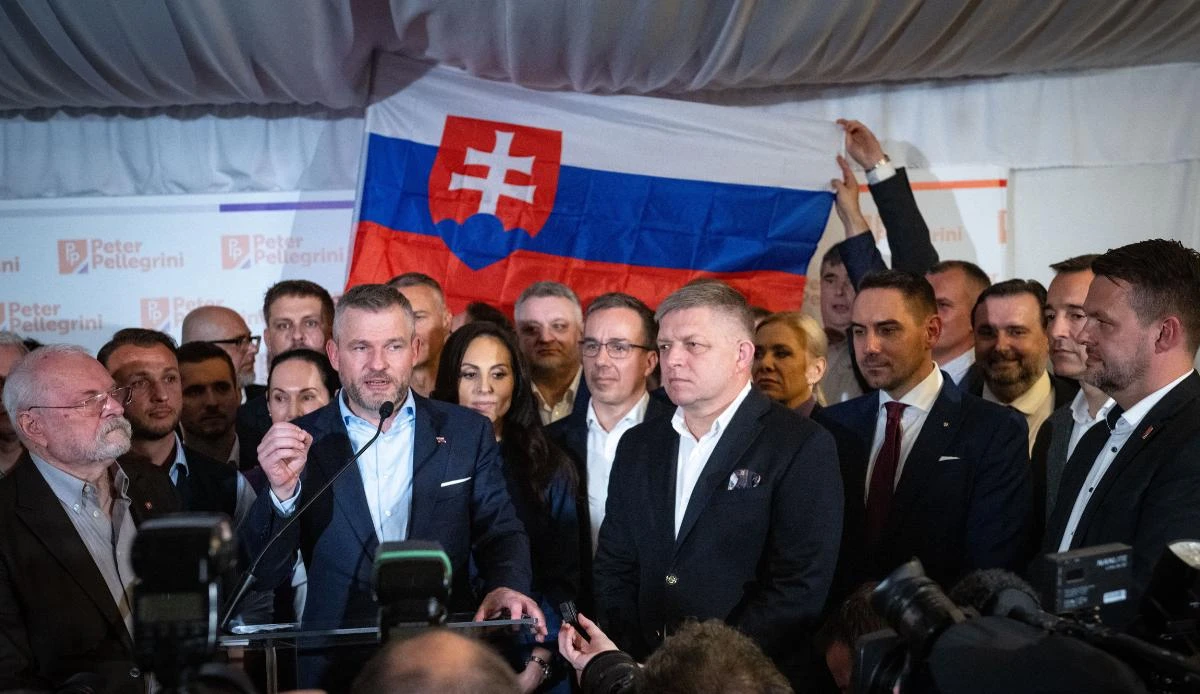Slovakia’s shift towards Russia expected to deepen with election of Ukraine-sceptic president

Slovakia’s pro-Russian views is strengthened by Peter Pellegrini’s victory in election, which saw him defeat pro-Western diplomat Ivan Korcok
With Peter Pellegrini’s victory, many predict Slovakia will become even more isolated internationally as the country’s pro-Russian views will be strengthened. Former premier and prime minister Robert Fico’s ally Pellegrini, 48, defeated pro-Western diplomat Ivan Korcok to win the election on Saturday. Sharp differences throughout the course of the continuing crisis in Ukraine typified the political fight.
Korcok opposed giving up territory in order to bring about peace in Ukraine, but Pellegrini stressed that peace negotiations with Russia are essential, declaring, “I will not be the president of war.”
With this win, Pellegrini is seen as an extension of Fico’s administration, which, since taking office in October, has exhibited doubts about Ukraine’s sovereignty and stopped providing military assistance to the nation.
Pellegrini’s presidency, according to analysts, will make Slovakia even more isolated within NATO and the EU. Tomas Koziak of the University of International Business ISM believes that Pellegrini is set up to act as Fico’s go-between, which could be similar to Hungary’s departure from EU norms under Prime Minister Viktor Orban.
Pellegrini’s elevation might increase Fico’s control over the court, despite the fact that the president is primarily ceremonial. This raises worries about the deterioration of democratic principles.
Comenius University analyst Aneta Vilagi highlighted concerns over Slovakia’s future abroad reputation, especially after outgoing president Zuzana Caputova, a fervent admirer of Ukraine, left office.
Fico’s anti-war narrative from the previous year’s general election is consistent with Pellegrini’s campaign rhetoric, which is marked by fear-mongering over possible Slovak engagement in the Ukrainian crisis under his opponent. Analyst Darina Malova cautions that this story can further damage Slovakia’s standing abroad.
Experts predict a spike in pro-Russian rhetoric, even as Pellegrini downplays any meaningful changes in foreign policy. While Slovakia might not veer clearly toward Russia, Koziak says pro-Moscow statements are anticipated to placate Fico’s support base, which has strong pro-Russian feelings.
Figures from the Globsec think tank highlight how vulnerable Slovakia is to Russophilia, with a large proportion of the populace blaming Kyiv or the West for the situation in Ukraine. Due to historical linkages and the spread of misinformation on social media, there is a tendency towards Russia.
Pellegrini’s seeming lack of concern for Russia’s activities and the Ukrainian crisis highlights worries about Slovakia’s future under his leadership. Experts advise against strengthening Slovakia’s connections with Moscow at the price of its partnerships with the EU and NATO.
Source: AFP



